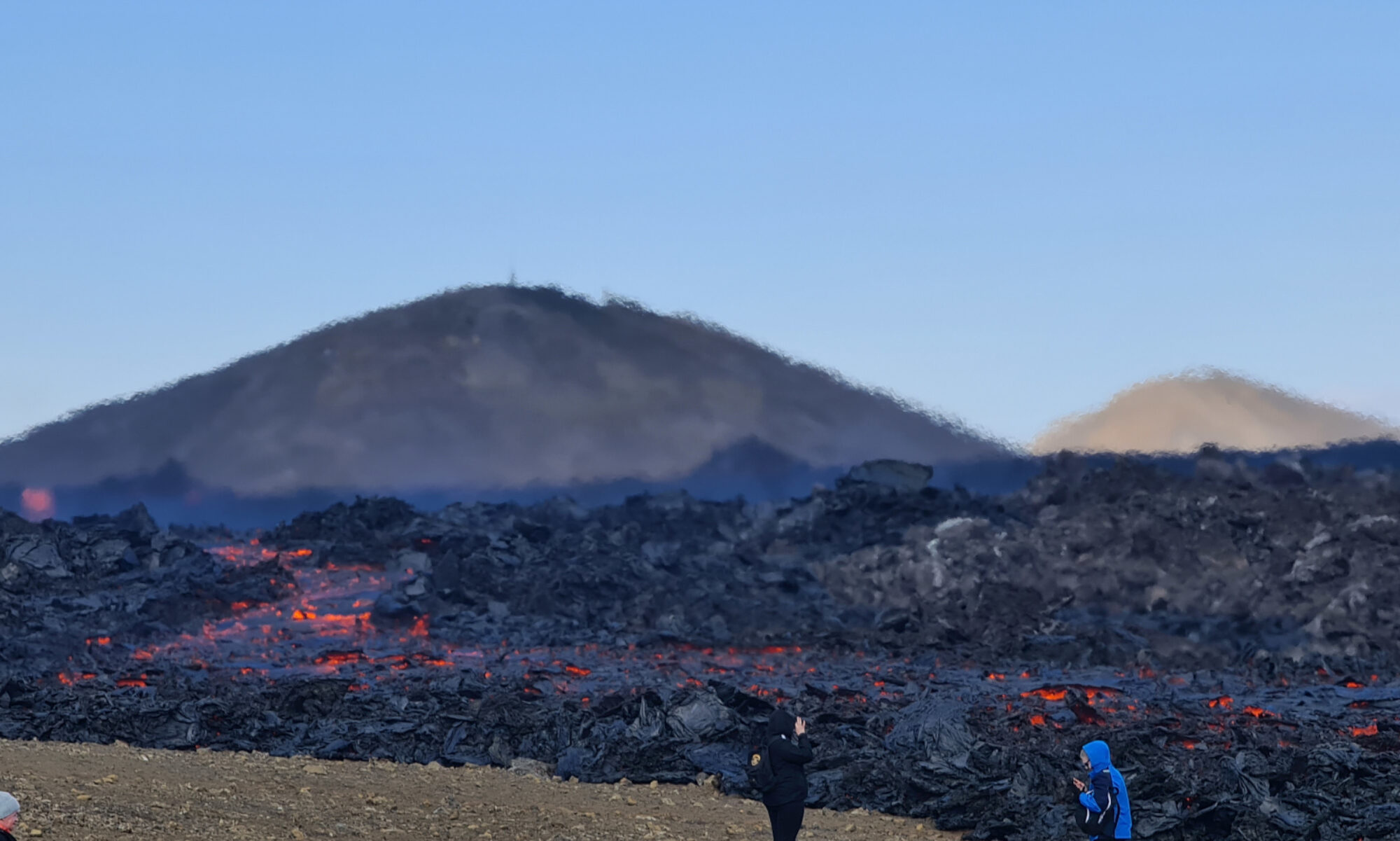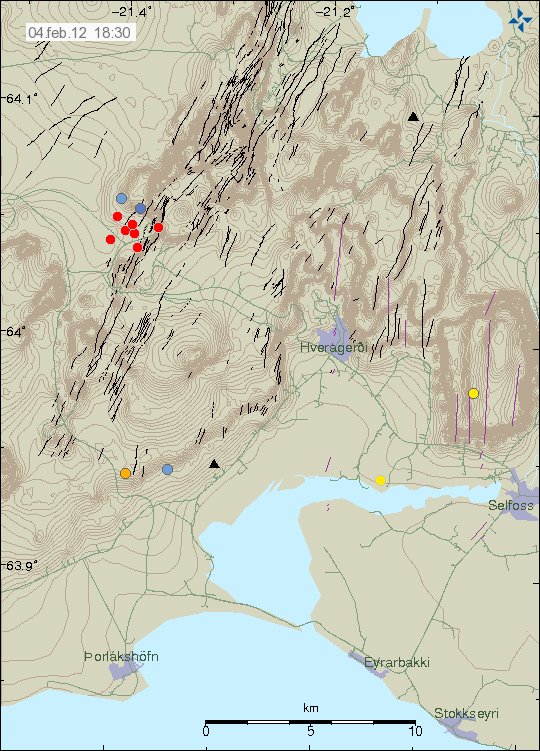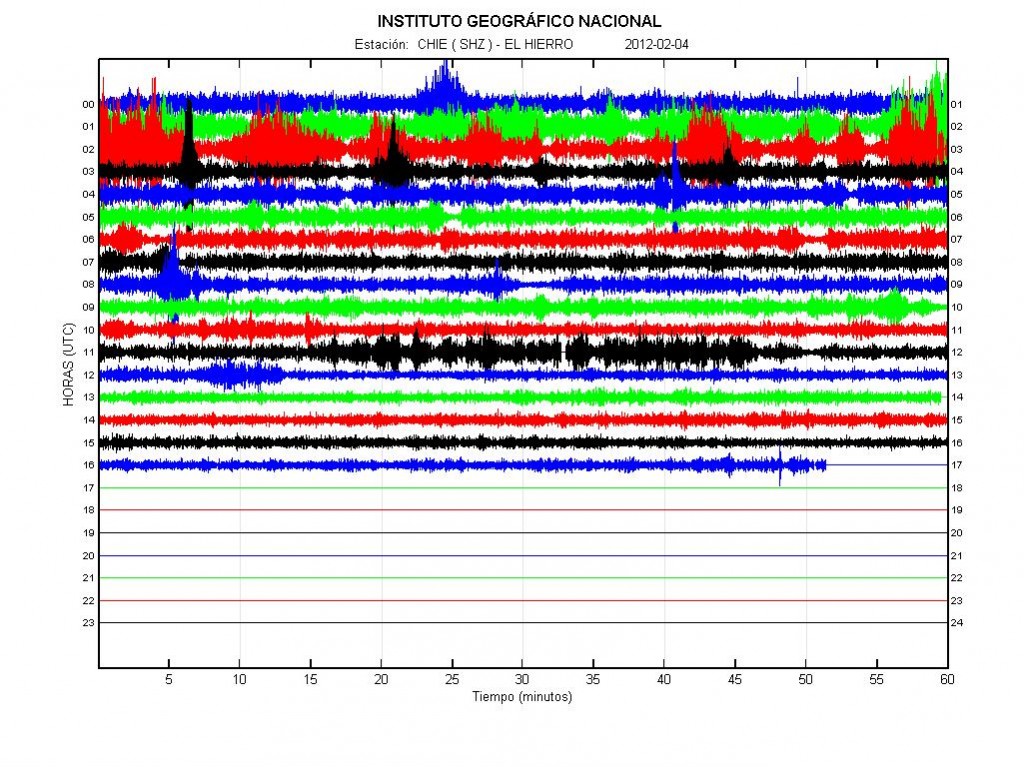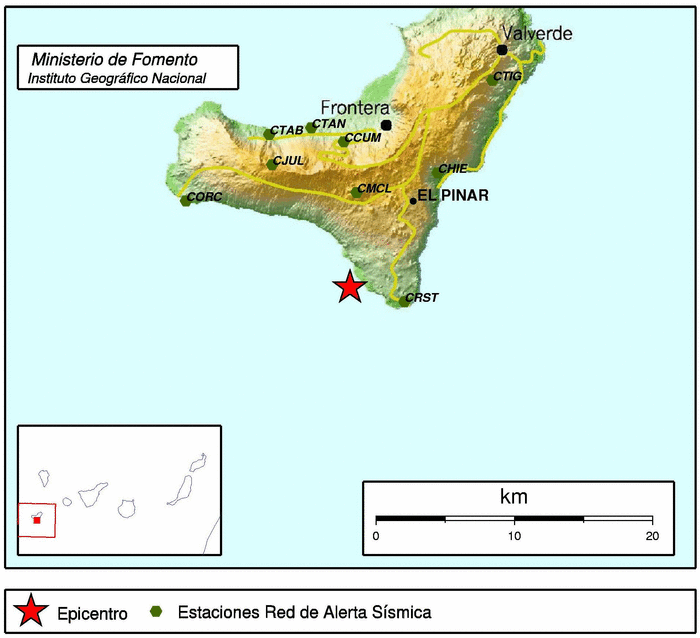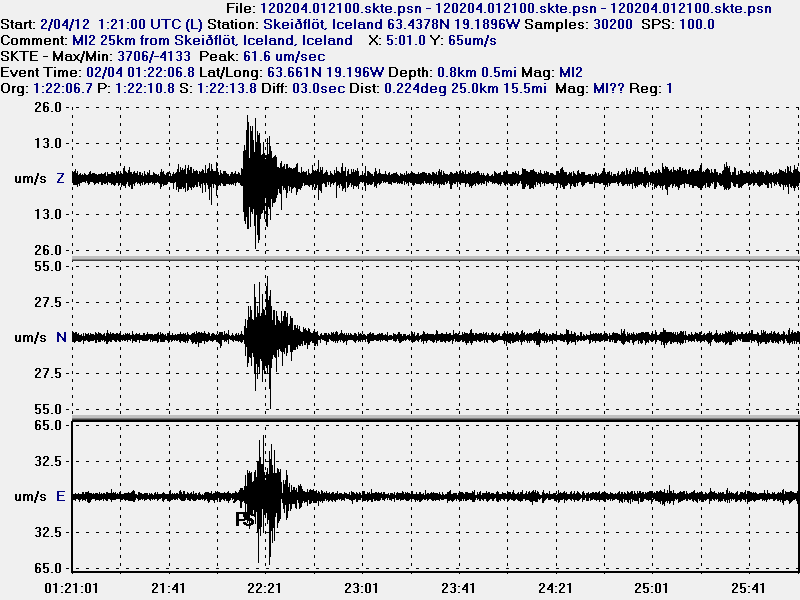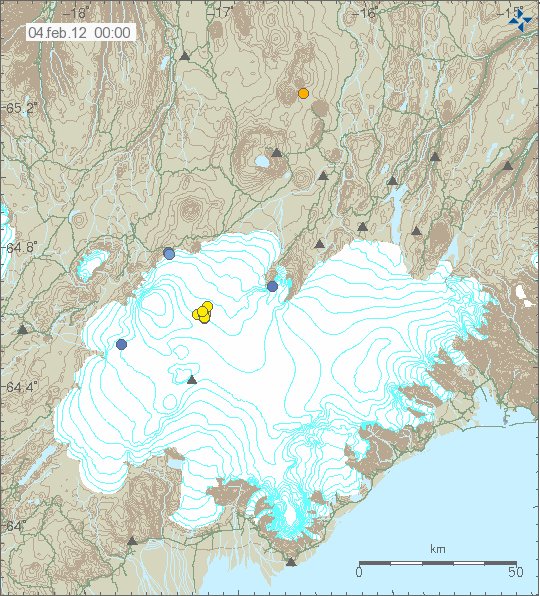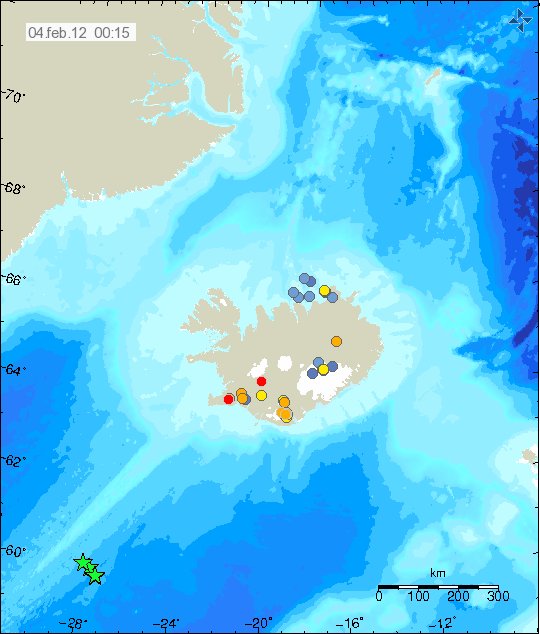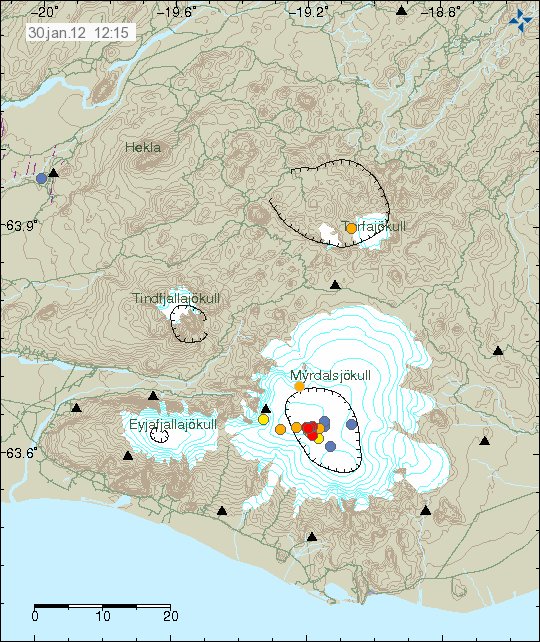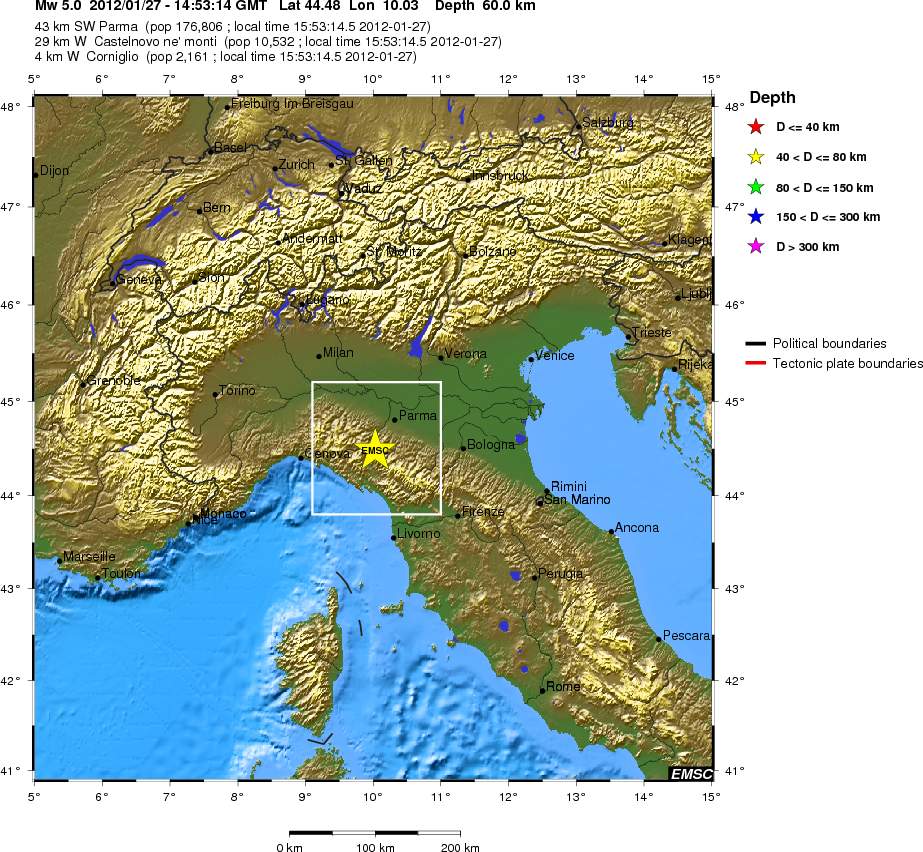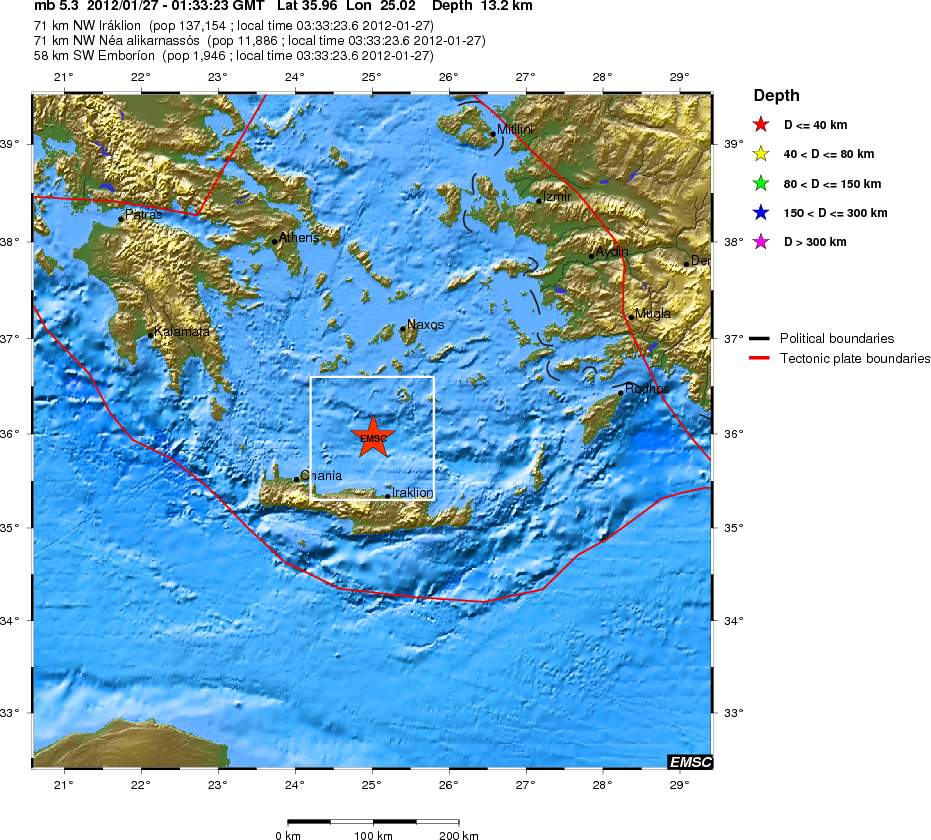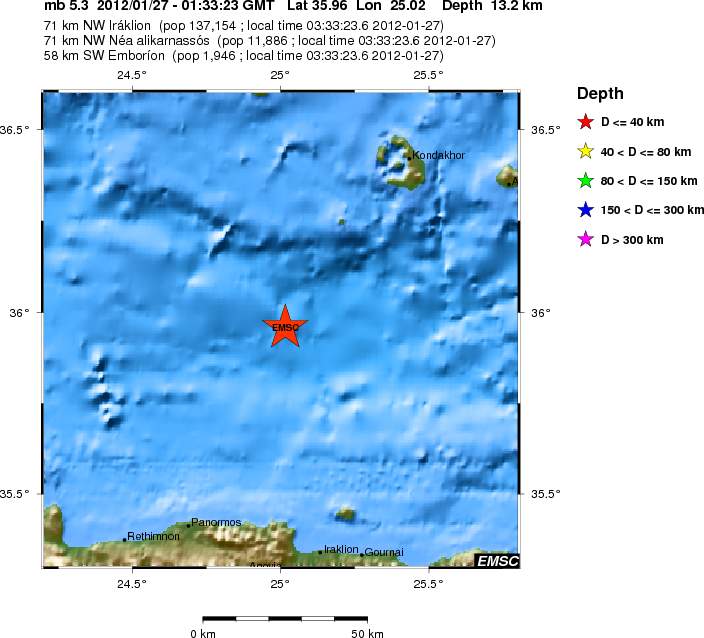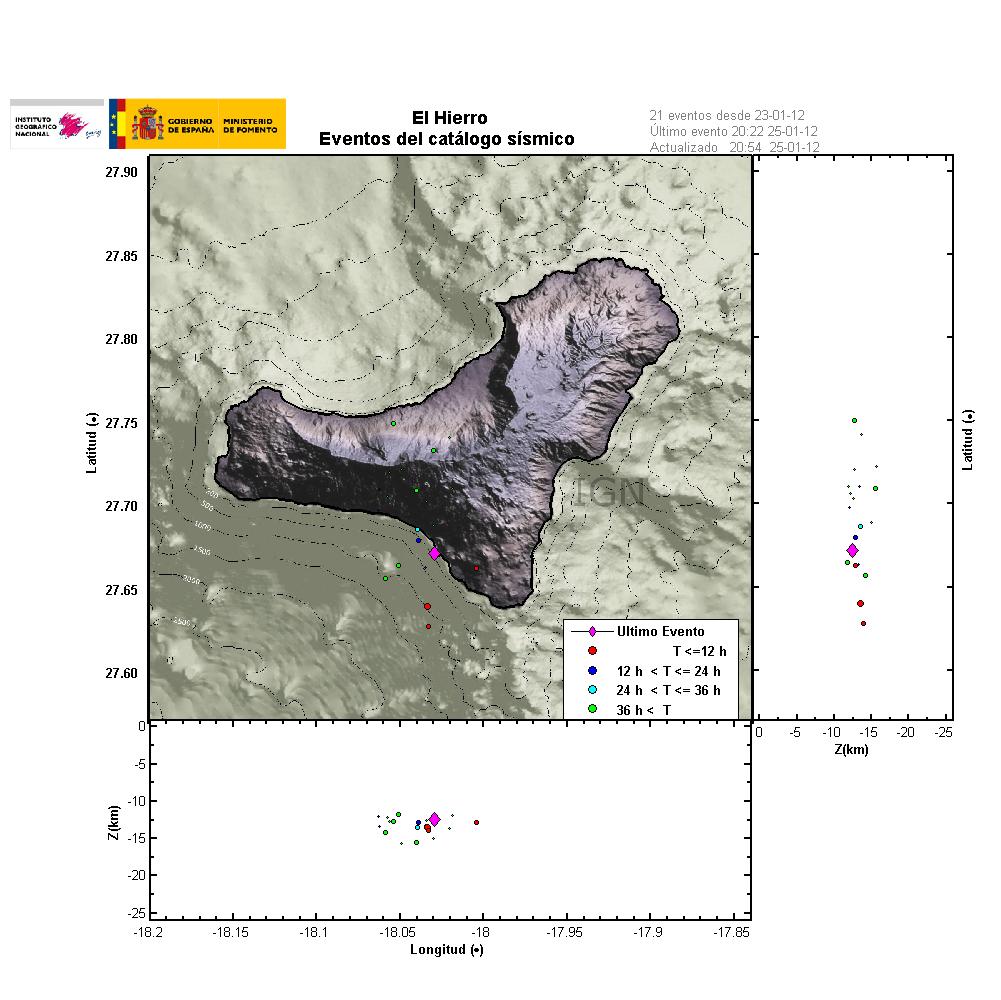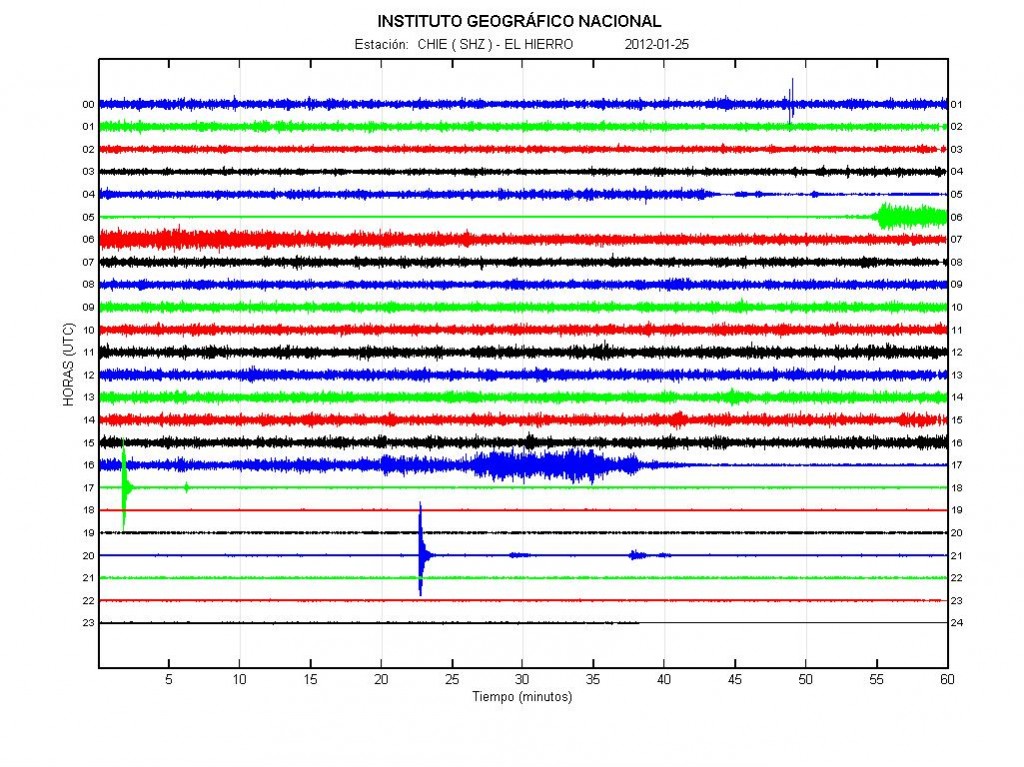Early this morning at 04:24 UTC there was an earthquake with the size of Mw5.3 this morning in Greece, Dodecanese Islands according to EMSC. The depth is estimated around 10 km. According to EMSC this earthquake was felt on nearby Islands. But it was followed with more the dozen or so aftershocks. The largest ones had the size of ML4.1, the largest aftershocks have also been felt on nearby Islands. But the epicenter of this earthquakes is out in the ocean. A good distance from next populated area. Aftershock activity is currently ongoing in this area.
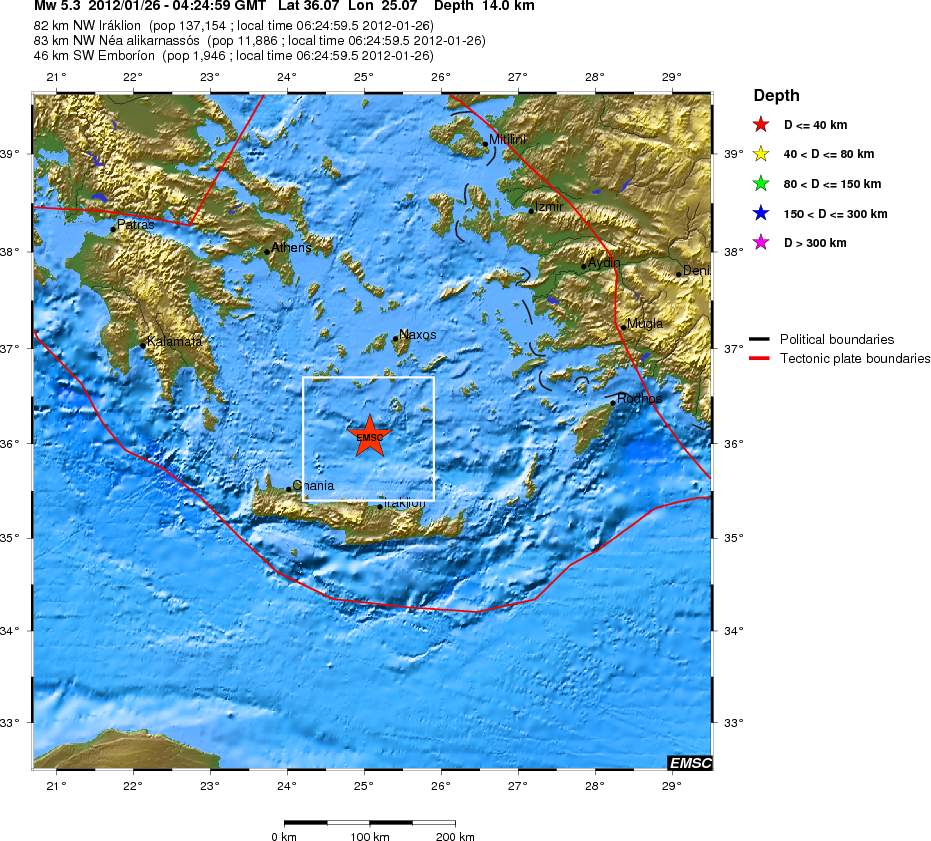
The location of the Mw5.1 earthquake in Greece, Dodecanese Islands this morning. Copyright of this picture belongs to EMSC.
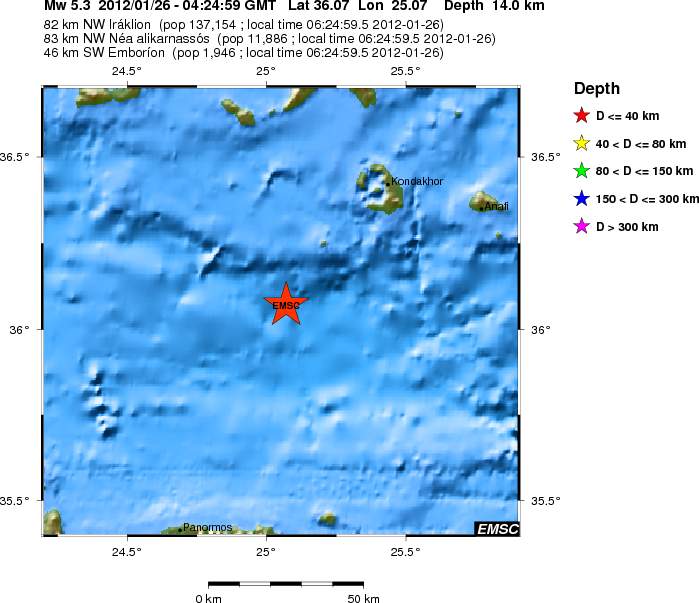
Local view of the earthquake this morning in Greece, Dodecanese Islands. Copyright of this picture belongs to EMSC.
Earthquakes of this size are common in this area of Greece. But in this area of Greece has an active subduction zone. As can be clearly seen on this picture here.
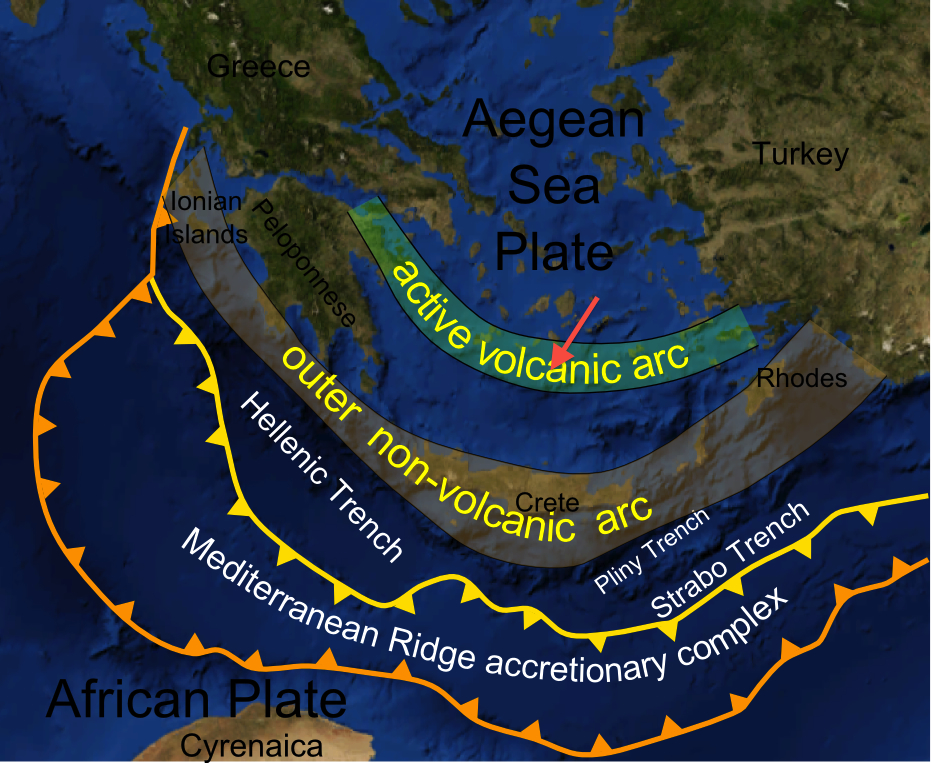
Picture of the subduction zones in Greece. Copyright holder unknown. But the picture is from the blog, In the Company of Plants and Rocks
For this reason, this area is highly active in both earthquakes and volcanoes.
Special on glasses and GSM repeater
Because I have to buy new glasses. I have to delay buying GSM repeater for my mom and dad. As my income does not allow for me buying both. But the cost of each is around 2000 DKK (offers and discounts depending on the glasses). A money that I cannot afford to spend all at once now. So I am just going to collect for the GSM repeater later in the year after I have moved to Denmark. As glasses have nr 1 priority for me. Since I am close to being blind without glasses. That is one reason why I hate having this small income as I do today. It is my hope that I can change it in next few months (12 to 24 months). At least I am going to try to do so.
Those how have already supported me for the GSM repeater. Thanks for the support. I however have to use it buy new glasses when I go to Denmark next month to apply for an apartment.
Blog post updated at 21:23 on 26.01.2012
